Exodus - The Story of My Faith
So…
I have told this story before, but it came in pieces as things were unfolding. And then once it was “done” my life wasn’t exciting enough to warrant many blog posts.
I just finished extracting my blog from its previous host and converting it into this latest incarnation, which gave me the odd honor of reading much of the ancient lore to update links and group things into useful categories.
The person I was back then is strange for me to see now. What I once considered solid facts of reality now feel like vapor — insubstantial and hazy. This paradigm shift in religious belief has brought my family unknown grief and worry, and worn an unbridgeable chasm between me and my last dear friend.
So I wanted to gather together the past and provide one unified telling of how things came to be. For you, my unseen readers, as well as those in my life who might wish for a deeper understanding of my heart.
The Good Old Days
I was raised in a faithful LDS family. The youngest of five children, born in Provo, Utah shortly before my dad finished his Master’s degree at BYU (though my parents didn’t meet there — minus two points).
We moved around Texas during my earliest years, before finally settling in Arizona when I was seven. My entire grade school education happened in that rural town of a few thousand residents, where I’m guessing about 40% shared our faith.
Belief wasn’t an issue for me as a kid. The first memories of any doubts were around 11-13 years old when I was expected to begin thinking for myself. But all I needed to resolve the issue was confirmation that the powerful feeling when watching the climactic scene in “The Testaments” was indeed the Holy Ghost. This lined up with what everyone always taught me and was repeatedly reinforced by family, friends, and leaders. I had no contradicting information at the time and trusted them. This experience and the unnumbered similar ones since then formed the foundation of my personal testimony for the next decade.
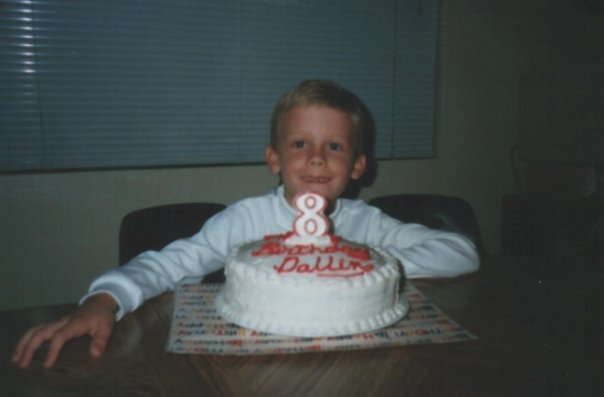
Adolescence
I guess my high school career went about as well as one could expect, drama and all. I enjoyed attending Seminary — especially because we were able to take it during the day as an elective instead of waking up early. It was a regular change of pace from the normal school day with no tests, the occasional Holy Ghost feeling, and gave me a few additional bricks in my faithfuful foundation.
One notable testimony moment concerned the witnesses to the Book of Mormon. The simple question, “why would they lie?” felt almost groundbreaking to me at the time.
I was settling into a well-defined pattern. The world worked a certain way, evidenced by my feelings, the events of the past, and the lessons of those around me. Faith and the church gave me an explanation of the past and present, a roadmap for the future, and people to guide me along the way. It didn’t feel supernatural; this was just the way things were.
As young LDS men grow up, they’re expected to prepare to serve a mission. I knew I needed the right motivation if I was to dedicate two years of my young adult life. So while I considered my testimony solid and natural, it wasn’t exactly burning to a point that I had to share it with the world.
EFY (“Especially For Youth”, now called FSY: “For the Strength of Youth”) stoked that fire. Several days fully immersed in a large group of youth, with the most powerfully spiritual experiences I had ever encountered, buoyed me over the hump and got me excited for others to feel this awesome.
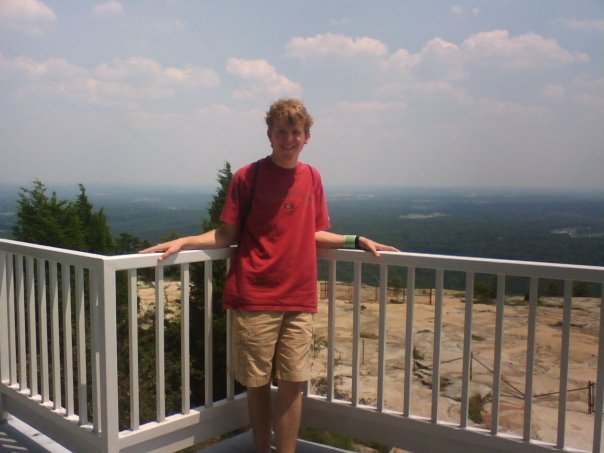
By this point, though, I had also begun falling into the depressing thrall of my suppressed attractions. To relieve stress and feed my insatiable curiosity, I went against the guidance of my parents to search the internet for images of naked boys, which only added to my sense of stress and shame. I’d try to abstain before EFY and temple trips, while also secretly hoping to see or touch my peers during those events. My bishop sent me to a few counseling sessions, but this isn’t the kind of thing you can bottle up without consequences, and I was too naïve to realize that these feelings had anything to do with “being gay.” So I struggled my way through graduation and made my way to BYU.
The Field is White, Ready to Harvest
I loved my freshman year at BYU. It wasn’t exceptionally “religious” but neither was I. My faith was just a natural part of life, so of course I attended religious education classes including “mission prep”, but the exciting memories came from growing up: grocery shopping and cooking my own food; spending social time with my roommates; and learning interesting skills like folk dance.
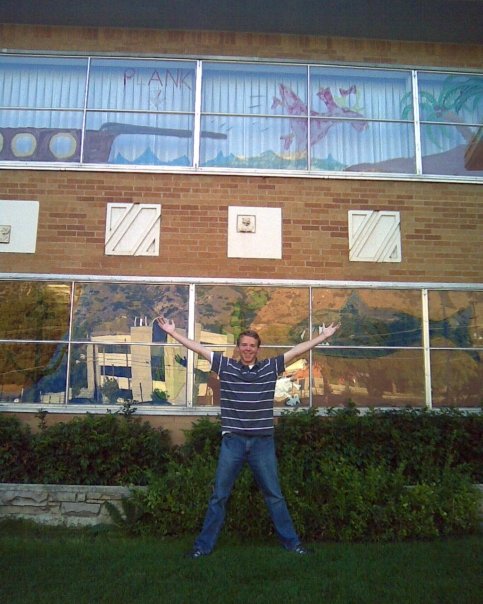
I was old enough to leave for my mission after one semester, but had decided to stay a full year and go during the summer. I filled out the paperwork early in the semester and was told to meet with a therapist for an interview. I had assumed it would be about the maybe-not-literally-but-essentially-porn problems my bishop had known about. And maybe it was, under the surface, but what they actually asked me was whether I thought I could handle the stress. And since I had been having a wonderful year, I said yes and they let me go.
I eventually got the call in the mail, but didn’t open it. My parents were scheduled to visit soon to take me through the temple, so I waited until they could be there in person for the announcement. In total, there were “40 days and 40 nights” from the day I submitted my paperwork to the day I opened the call. I enjoyed the reference.
My parents arrived and we opened the call to the Hawaii Honolulu mission, reporting in May. I quickly got interviewed for my “big boy” temple recommend and endowment, and on March 13, 2009 I went through the Salt Lake City temple.
All the workers in the temple saw I was fresh meat and asked where I was going on my mission. Their response to Hawaii was “that’s not a mission, that’s a vacation!”
My parents had bought and prepared my temple clothes for me, so I hadn’t seen all the pieces involved until I was in the session itself. But dad was at my side guiding me the whole time. I was busy trying to remember everything, not knowing that they would help me out in the end if I forgot something.
When I passed through the veil and walked into the Celestial Room where my family was waiting, I got a full dose of Holy Ghost and hugged them in turn while crying. Mom sat me down and gave me a chance to ask questions, but I don’t remember any details.
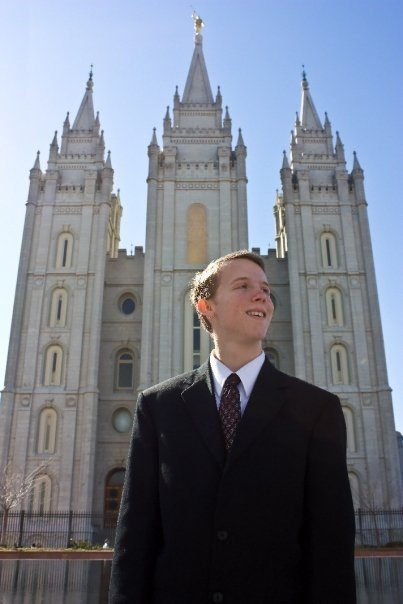
The semester ended, I reported to the MTC, and immediately had health trouble. My appetite had been already pretty small for a few months, ever since Christmas, but the back pain was pretty new. I assumed it was the same issues I had been through a few years earlier, so tried to power through and attend all the classes.
My mission assignment was English speaking, so we only had the standard lessons. Study the “Preach My Gospel” manual, practice teaching investigators in mock lessons, and attend devotionals. My method for utilizing the Spirit in decision-making and teaching essentially consisted of channeling an open state of mind and responding to the ideas that came into my head.
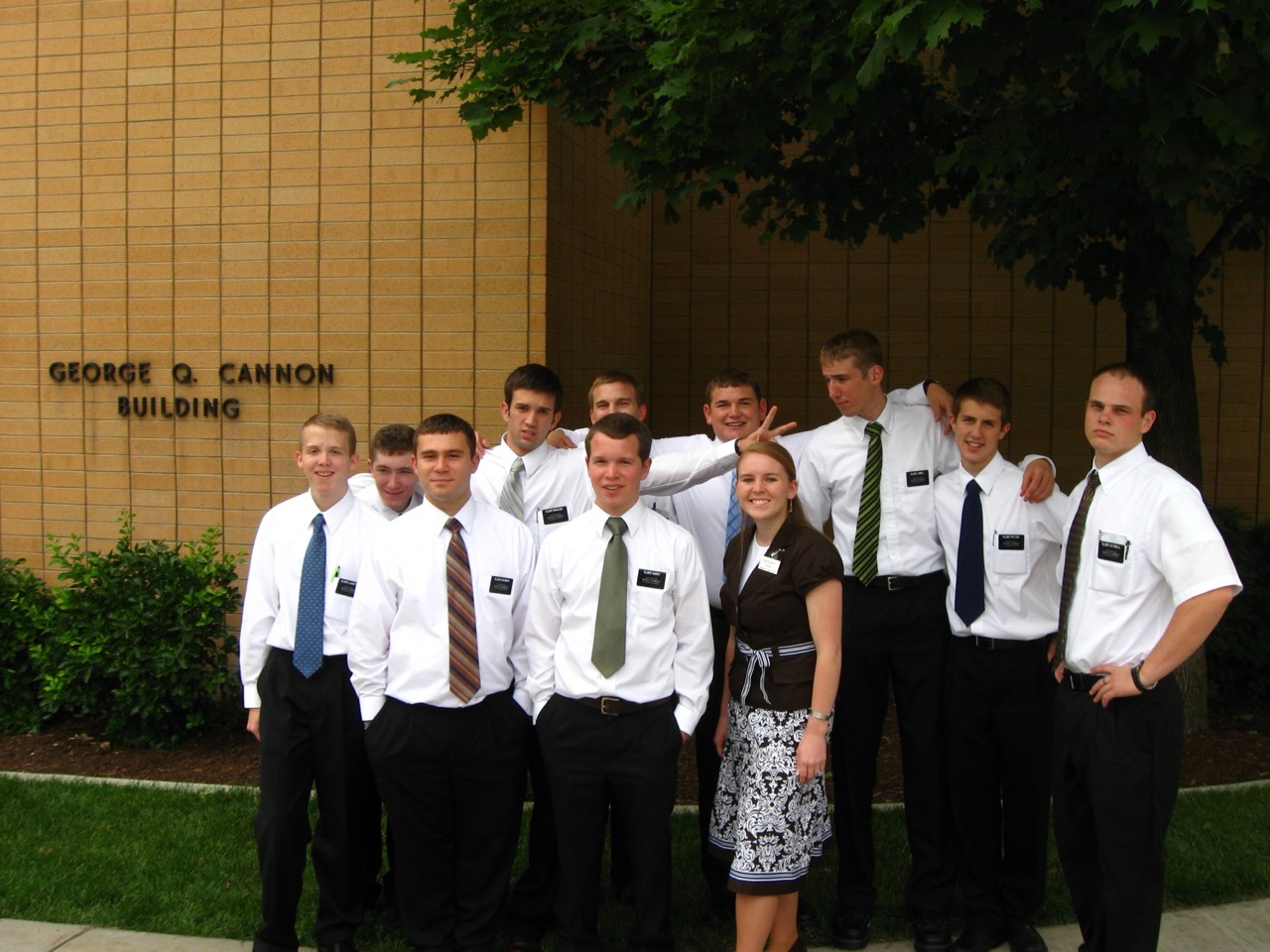
When we eventually arrived in Hawaii (after a quarantine delay due to H1N1 cases), I was sent to the Big Island where I spent the next 4 months adjacent to or driving through the rainforest to teach people.
My low appetite, frequent afternoon back pain, and a healthy dose of “we’re isolated on a totally different island from the mission president” made my time on the mission feel very different from expectations. I never had a long stretch of things going well. I was good at answering questions (we never got hit with the hard stuff), but decision making never really felt guided.
We’d exercise in the mornings, have personal and companion scripture study, then try to make the rounds meeting with scheduled appointments or knocking doors in a rotating cycle. I always had a car, since the zones were so large, but we’d park it and walk when tracting a street. We’d eat lunch alone, but usually have dinner with ward members. Though by dinner time I sometimes felt bad, and usually couldn’t eat much anyway until the pain faded around dessert. I learned that this gave me a reputation among the missionaries for only eating dessert.
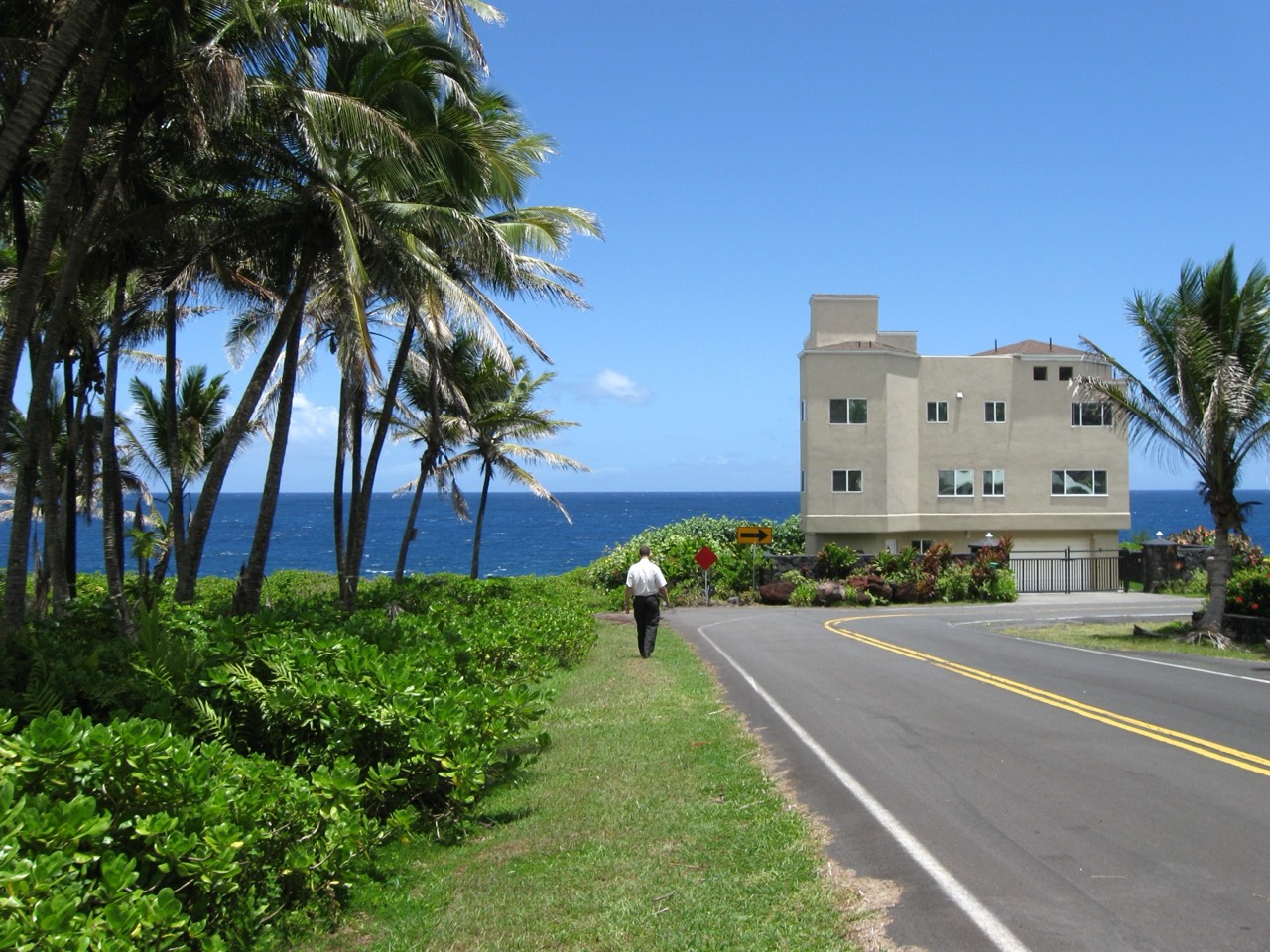
The strongest religious moments were during the zone conferences. My prime example being one time when I wondered how I’d react if angels descended right then and there. And I was scared, which gave me something to think about in my journal.
Eventually I was moved back to O’ahu and we took the opportunity to finally get some medical attention. I had lost weight (impressive for a Hawaii mission) which made the president concerned. And in January 2010, only eight months after arriving, I returned home with a medical release.
The people were awesome, the location was beautiful, and I had a lot of fun between problems. But I had relatively few spiritual memories and returned with a general sense of guilt that I didn’t do enough.
Recovery and Isolation
The doctors quickly diagnosed me with Crohn’s Disease and got me medication. After a few months I decided not to try returning to the mission, so when summer ended I went back to BYU, taking the off-campus apartment room my older brother had just left.
This time around, things did not go well. I tried to keep going, but unlike freshman year, I didn’t have a good connection with those around me. I didn’t spend time with my roommates or those in my classes, so when nothing was scheduled, I did nothing. And for the first time in a long time, I went back to my stress-induced cycle of pseudo-porn, with nothing and no one to pull me out.
I went to church, because it was normal. And I prayed, because I felt bad. I didn’t like what I was doing, but I couldn’t stop. It made me feel, when the rest of my life was drained. My grades started dropping, and I had to retake one of my classes.
Those three years at BYU after my mission blur into a smear of slowly increasing tension in private mixed with apparently normal interactions in public. My roommates during the last year were good people and tried, but I was already set into my bad habits and resisted many of their efforts.
No one knew what I was going through. Looking through Facebook for photos to include here, I see family reunions, 5K runs, cooking, parades, and my first long-term job. Plenty of life, and I’m sure I enjoyed it. The funk came in waves, and during low tide it was easy enough to keep afloat.
And still I never questioned my faith. I had no reason to. I felt bad because of my own actions, which were wrong because I was objectifying people’s bodies and disrespecting my own.
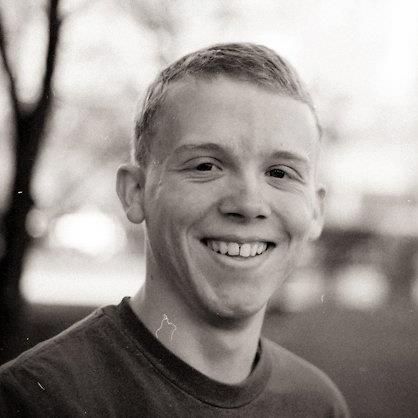
And ironically, for a while I looked pretty awesome.
The “Gay” Thing
After graduating in the spring of 2013, I bought a car, accepted a full-time position at my job, and moved to a new apartment. Later that year, on September 15, I finally told my mom what I had been going through the last three years. And for the first time I connected my attractions with the label of “gay.”
This realization set off a landslide of powerful changes. I sought out a therapist on my own terms (which only lasted two or three sessions) and looked at my past through this new light. I found North Star, which gave me a community of people who could understand me. And in meeting with them, for the first time since freshman year I had camaraderie and fun without the need to detach or hide.
Religiously, I consider myself very lucky at this stage of my journey. My parents had not taught me to feel disgust towards gay men. My bishop hadn’t outright confronted me with hellfire and damnation. And my attitude towards spirituality and faith was a matter of personal experience, not dogma from the pulpit. I hadn’t paid much attention to the events of Proposition 8. And, overall, every encounter with the concept of homosexuality was tempered and filtered to the point that I had no conscious notion that my very existence was something to be ashamed of.
I treated this as just another important fact of life, equal to the facts of my faith as I had absorbed them. I had no fear, because I had no intention of leaving.
I quickly began planning to come out, and wrote my famous blog post on May 1st, 2014. I was scared to let people see this part of me that wasn’t typical, but I took comfort in the religious padding of staying true to my temple covenants.
My self-exploration over the next year was always reigned in by this commitment. I felt awesome, which reduced the temptation to seek out porn. I was also scared to “branch out” and be more explicit in my searches. I had never typed “gay porn” into the search bar before, since I was unaware of its connection to me. And now that I knew, I began intentionally avoiding it out of fear.
I had searched for naked boys, sure, but they had never done anything sexual. I treated that behavior as something “purely physical,” driven by desire instead of any true love. Because that’s how I separated what I felt from what I wanted — what I was allowed to want.
I also saw my brother, who had come out to the family himself shortly before I did, but was in an active relationship. As far as I know, my family has always treated them well. But I saw our two paths: mine of remaining “faithful” and his of “going astray.”
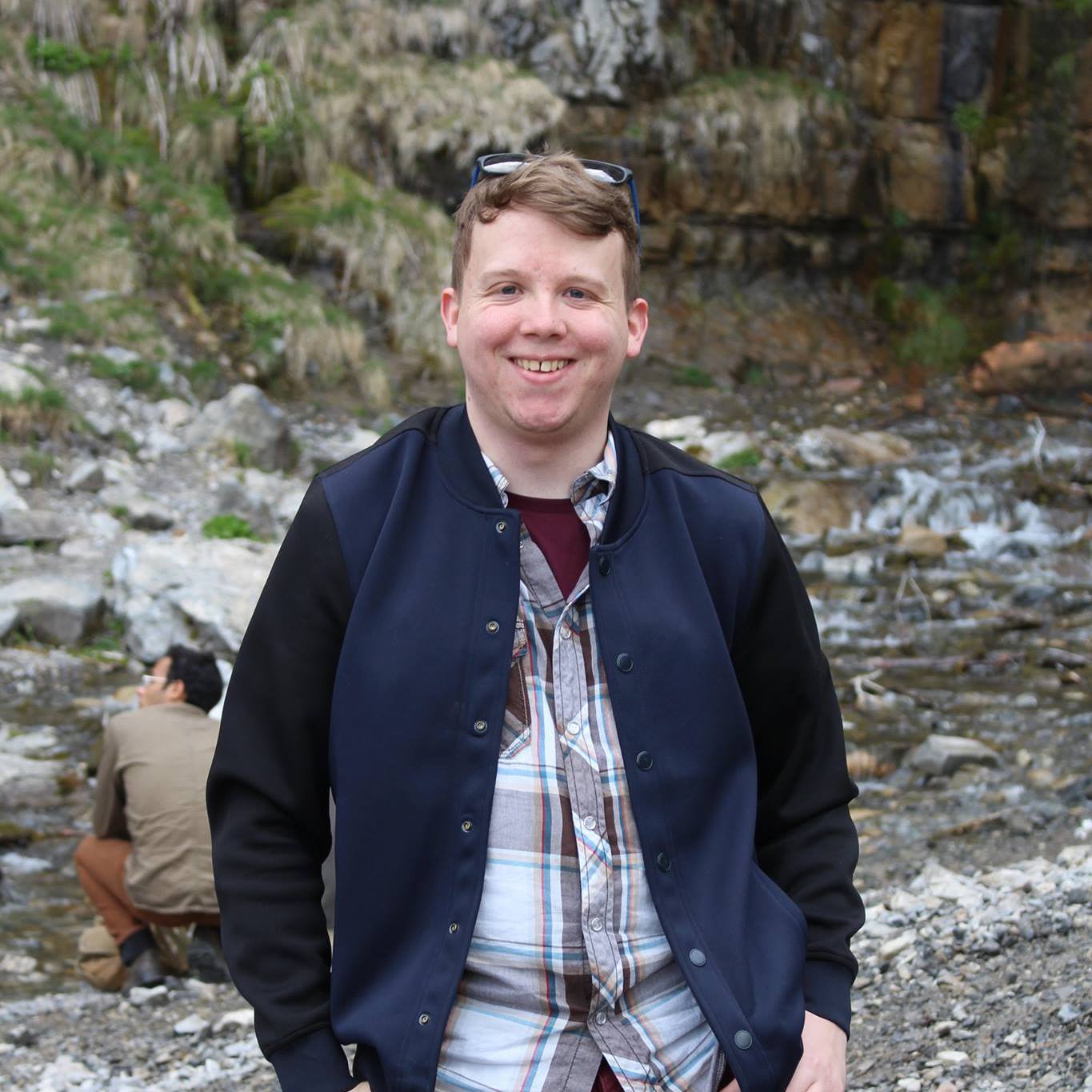
Oh, and I also recovered all the lost weight.
Moving
Right after my birthday in November 2015 I moved to London for a few months. But none of that is directly relevant to my religious story.
Except for this blog post immediately after returning. That post is the first time I mention it being a problem that I don’t feel my faith.
I can’t say that I believe that every word being said by church leaders on every subject is 100% correct. I can’t say that I know where I stand on some major issues. I don’t doubt the gospel, but I need to feel it.
I need to rebuild myself from the ground up. I need to examine myself, inside and out. And I need to discover my testimony again.
I didn’t want to admit that. I didn’t want people thinking that I was questioning the church, because I’m not. What I’m doing is stepping back from a façade of absolute and unquestioning surety.
Some time during high school I started looking back at my childhood. In those memories, I was able to readily feel the Spirit in lots of situations, and reliably summon its guidance. My teenage self had lost that gift and sought to recover the feeling. This blog post references that lost emotion, admitting that I had long behaved out of habit and logic instead of sensation and faith.
As I said back at the start, the sensations of the spirit were the foundation of my testimony from age 13 until here at age 26. And in the absence of the feelings, I relied on the memory, trusting that those feelings were true.
Shortly after returning from London I interviewed for a job at Google, and come September I was living in Seattle.
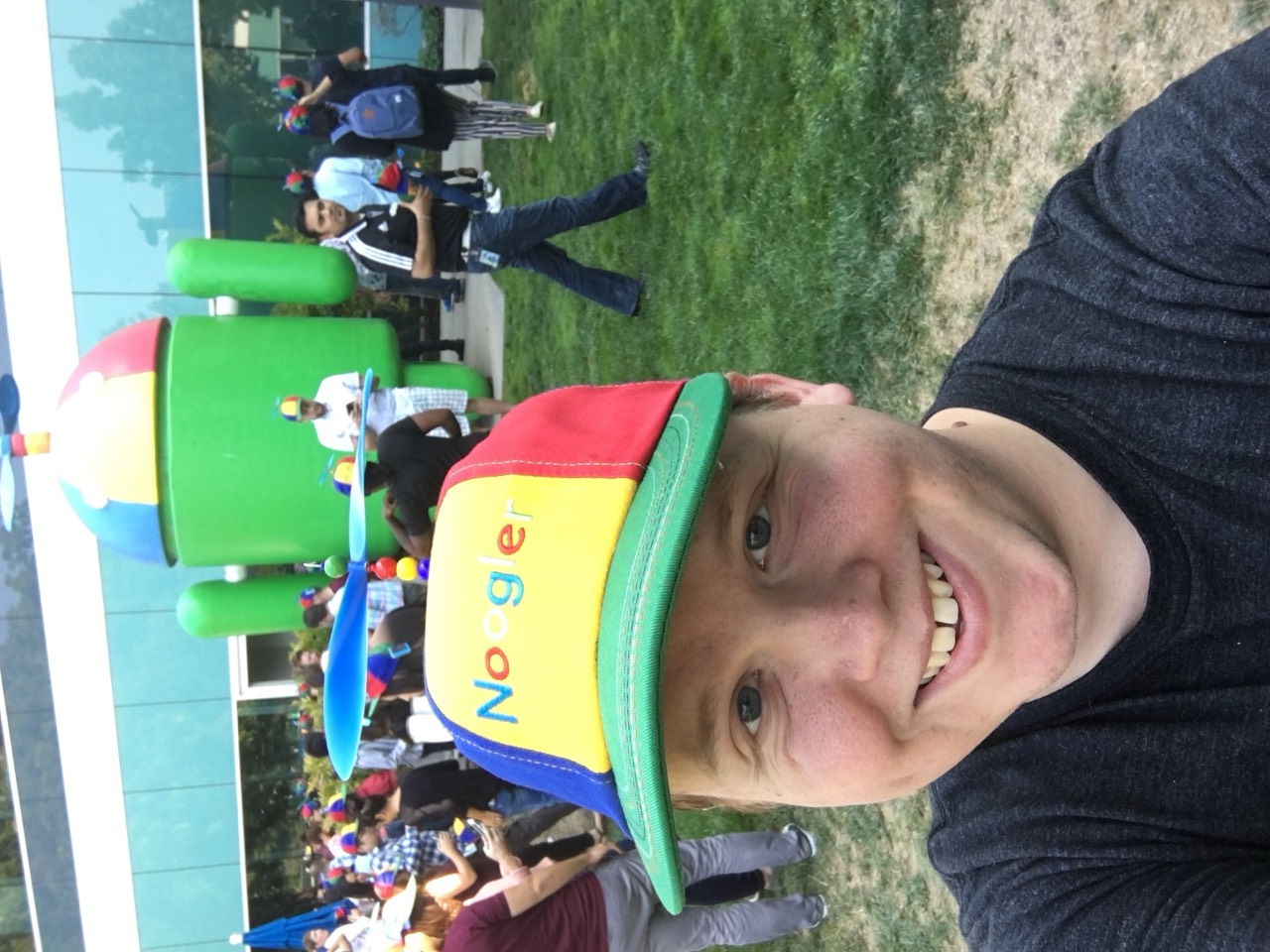
I chose an apartment that was halfway between work and church. And it was at church that I met the two important people for the next chapter.
Therapy
Let’s call the first friend B. I’m not sure why we started talking so deeply, but with them I was able to share my story and eventually question whether my change in temperament from happy child to morose adult might warrent another try at therapy.
Enter the second friend who we’ll call L. He was the only other out gay man in the ward and was able to invite me to some of the groups and experiences I had never known before. He recommended Josh Weed as a therapist, which I was excited about since he would understand my background in the same way the North Star community could. I started meeting with him around May 2017.
Josh’s approach to religion in therapy was to let me rely on it if I wanted, but that didn’t stop him from wanting me to answer questions. As a Mormon, he was able to both understand any references I made and give examples I could relate with.
He didn’t like North Star, comparing their approach to quickly popping the lid off a boiling pot before slamming it back down. Stifling yourself 99% of the time and letting off steam only in short bursts only keeps building pressure. It’s not a proper way to address the emotions involved.
Things like that — bluntly dealing with issues, but with reasons I understood and could agree with — made an immediate and lasting impression on me. Normally when I’d worry about some decision or question I’d consider what the different important elements of my life might react: my parents, the church, society, etc. Each of these groups had a metaphorical seat at the table of my mind and would argue amongst themselves about the issue. Leaving the voice representing me huddling in the corner afraid to anger any one of them. But Josh’s voice joined the council and gave me power to defend myself for the first time.
With his help (i.e. insistent prodding) I was able to form a story about my life. I started to understand that even though I had been “out and proud” for several years, I was still terrified of that part of me. It wasn’t simply wanting to keep the promises I had made, or considering acting on them to be “purely physical” when I wanted something more. I had managed to avoid the frightening truths by always distancing myself, separating the “safe” parts of my attractions from the “unseemly” ones.
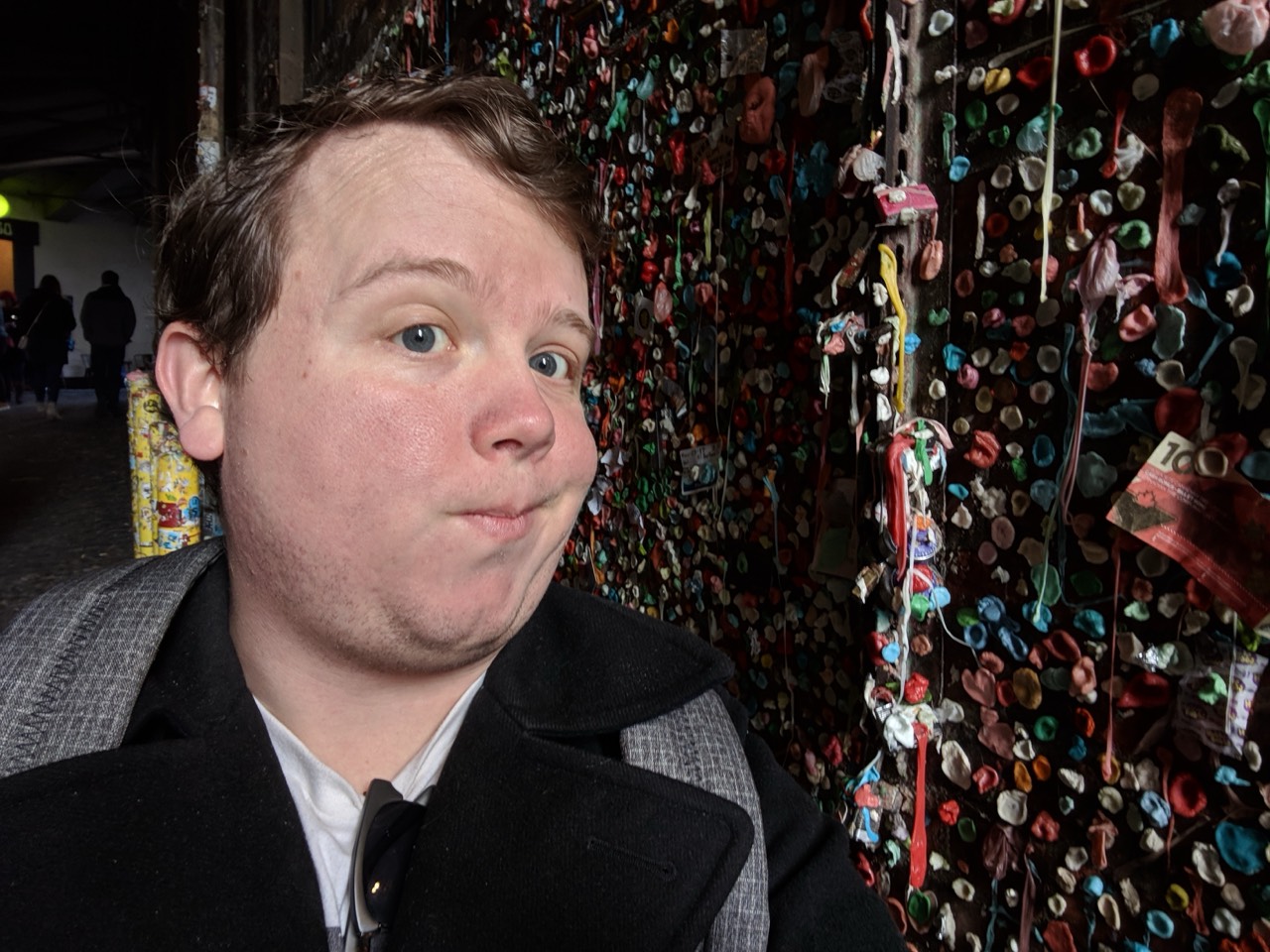
An Unexpected Direction
By this point in my life, I was well aware of how I often made decisions. Ideas would come to me, and be sorted away into the background. Over time they might occasionally surface, be considered a bit, and put down again. Until something pushed its way up and refused to stay silent, then I would act on it.
That’s what happened with my original coming out post. The idea surfaced and wouldn’t leave me alone, so I acted and changed my life.
That’s what happened with finding a therapist. After raising the question with B, I had to act.
And that’s what happened with my faith.
Without expecting it, the seeds that had sometimes popped up but were always rebuffed by my memories of the spirit suddenly erupted with the newfound strength of will and honesty that I had learned from meeting with Josh. And they would not back down.
I was forced to address the concerns of my faith. I hadn’t felt my faith consistently since I was a child. I based my entire testimony on memories of feelings and trust in those who interpreted the feelings as divine.
But what did I believe, without regard for the feelings of anyone else? Without relying on memories or trust in others, what could I say that would satisfy my own honorable heart?
Through that effort I discovered that every statement by someone else is capable of error. I am the only one that can know my own experience, but I may be wrong in my interpretation of it. And my recollection of past events or feelings may also be skewed by time or desire.
It’s true that I felt those things during spiritual experiences. But am I correct in attributing those feelings to the Holy Ghost?
Why do I think that those feelings come from God? Because I was told. By my parents, family, friends, and church.
What if they’re wrong?
This is why a testimony must be your own. But if everything I’ve based my testimony on could be wrong, how can I know? When every single word of scripture, Sunday School lesson, and General Conference talk might be wrong, what do you have left? Your own experience. But how do you judge that experience without trusting something outside yourself? It just keeps going around and around…
I’ve never had an experience that could be unquestionably attributed to God.
This is what destroyed my faith.
But it took a while.
A Slow Deconstruction
At first I settled on the existence of a soul and attempted to rebuild LDS theology as a possible appendage.
I was content with this. It gave me a way to continue attending church even if I couldn’t say I believed without asterisks. And it solved the persistent depression that had been hounding me for years.
I knew there were some gaps from the very beginning. Trying to reconstruct the entire Gospel from “but souls though” doesn’t address specific details like the need for Atonement. But I had found some piece of ground to stand on that I didn’t want to abandon.
This new understanding put me into a kind of limbo. I no longer had a positive belief, but I had a desire to stay faithful so I was hoping for honest feelings to arise. A draft post I wrote the following June applied the label “proto-atheist” to myself. I had no grudge against the church, but no way to resolve the tension either way.
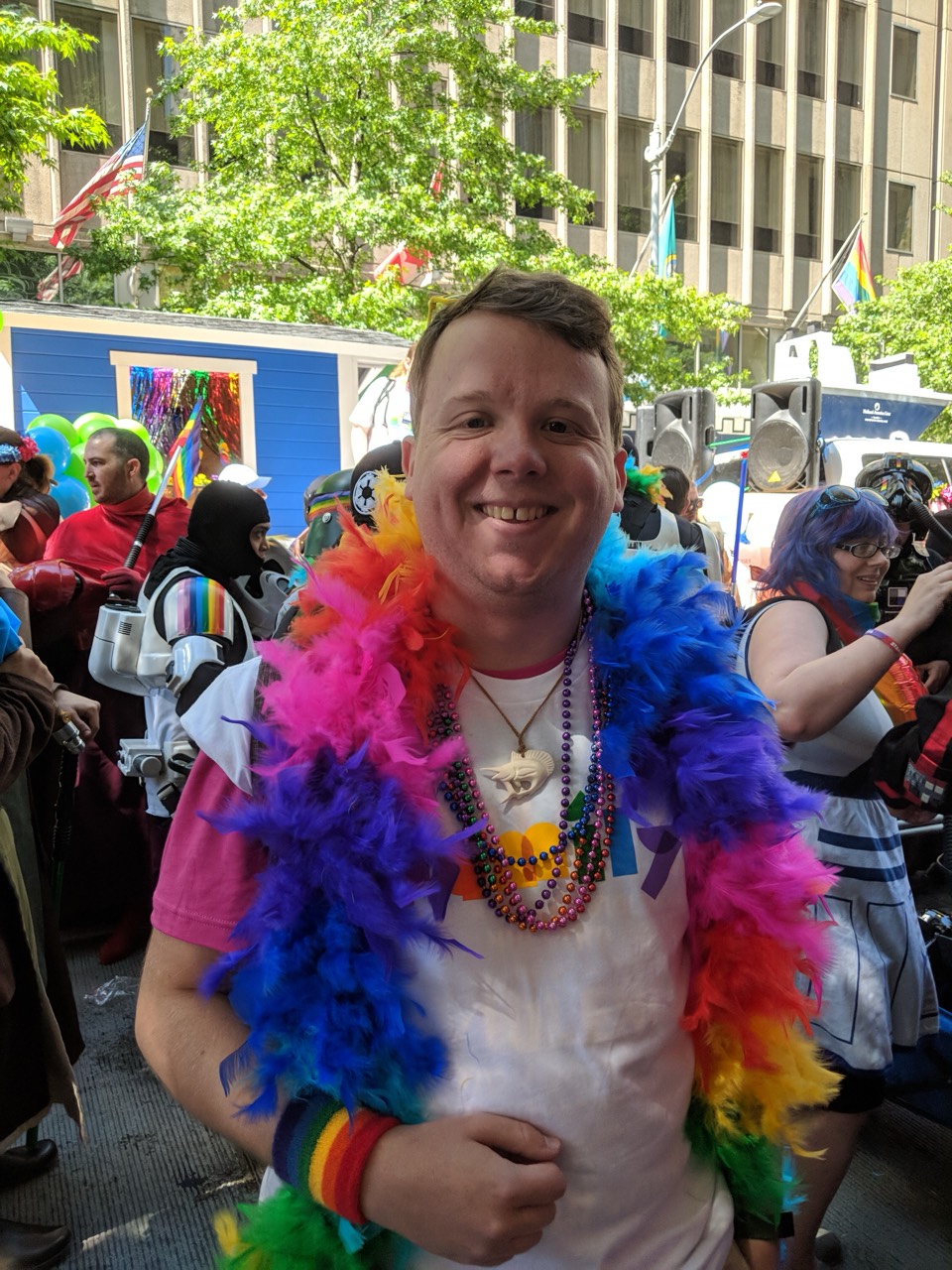
In September I finally managed to update the blog with a public post explaining this limbo to everyone. And from that point on I stopped claiming any belief whatsoever.
I continued attending church, to chat with B in the foyer and because I had responsibility as the organist. But I was content in my stasis. Listening to people share testimony had become an almost scientific experience. I listened to what they said, translated it into my personal formulations, and waited for some kind of emotion to appear. Some unmistakable experience.
Nothing ever did.
In March 2019 in-person meetings stopped due to Covid-19. Without a physical building, there was no need for an organist, and for the entire period of online meetings I’m not sure I attended a single one.
During this time I finally began listening to some of the non-Mormon arguments. Most from atheist YouTube channels responding to evangelical apologetics, but some directly targeting Joseph Smith and the early church.
The responses to evangelical topics originally made me glad that the LDS perspective on many of these doctrines makes so much more sense. I’m glad I didn’t grow up believing those silly things.
But the deep dives into Mormon history told a lot of stories I had never heard. They eventually formed a consistent narrative of the people involved. Lots of squabbling, power grabs, and using power to defend or further your own goals. Fascinating stuff, since most religions are too old for there to be verifiable history of details like this.
Doctrinally, a lot of inconsistencies were also demonstrated. LDS theology has some problems that other christian religions might wiggle out of, but Joseph Smith elevated multiple Bible stories into historical necessity when there’s scientific evidence against it. The Garden of Eden, Noah’s Ark, and the Tower of Babel are all real events according to the Book of Mormon, but none of those fit into verifiable history.
In aggregate, these videos dismantled any remaining chance of my regaining a belief in LDS theology as well as general Christian doctrine. So by the time in-person meetings resumed, I was ready to step back and never return.
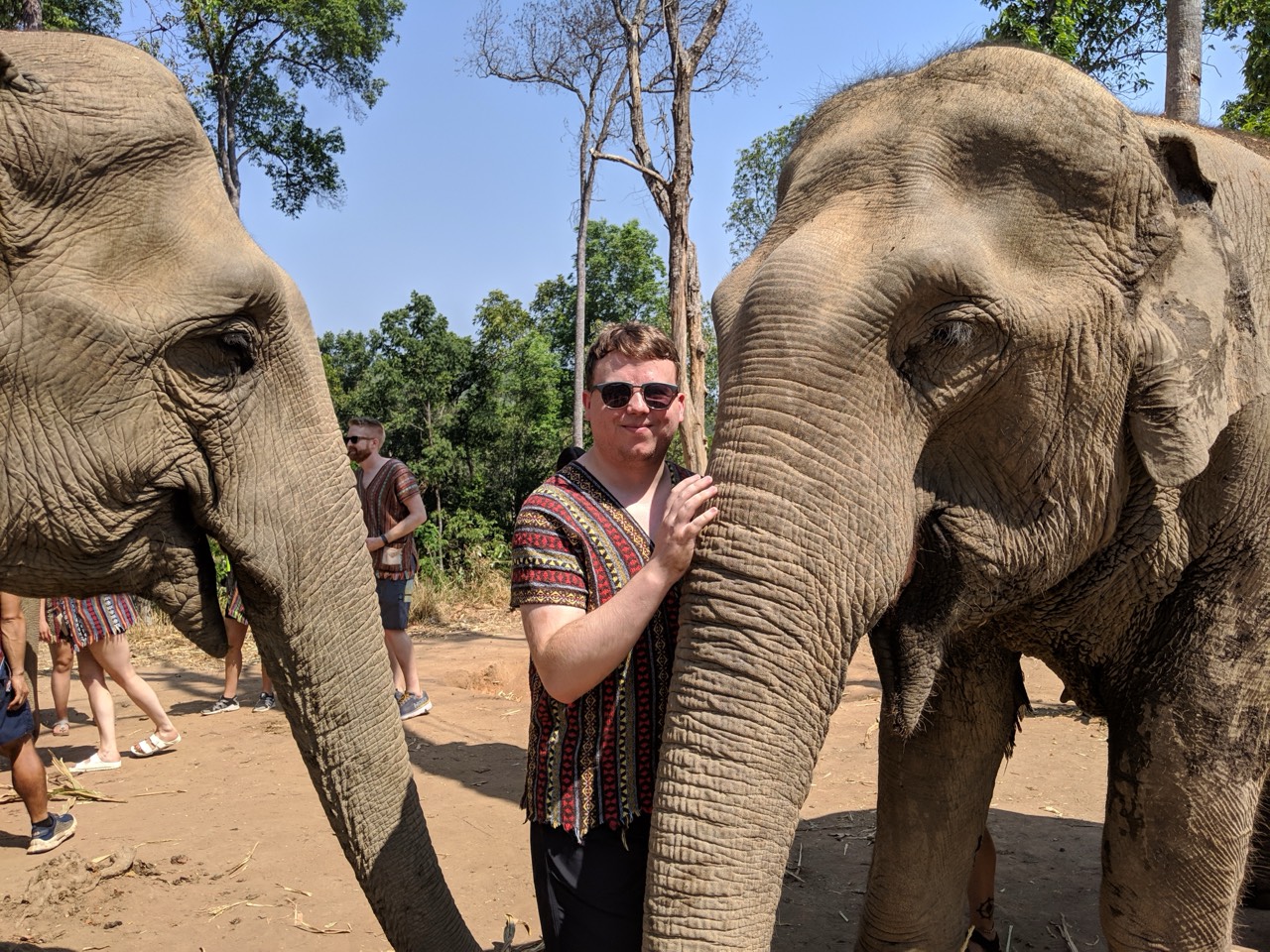
A Daring Escape?
Shortly before the in-person meetings resumed, I encountered comparisons of LDS member and leader behavior to rubrics that gauge cult severity.
The main method was called the BITE model. It details various categories of control over physical and emotional aspects of someone’s life, such as punishing disobedience, controlling access to outside information, and thought-stopping techniques.
The LDS church fits many of the less-extreme items. It doesn’t beat and torture members or create false memories. But it does instill fear of losing salvation (or a family member’s), discourage access to critical information regarding the religion, and distribute extensive self-produced material, among others.
I didn’t really consider the overlap between the BITE model and the church very concerning, but I did decide to listen to what people said and how they felt during the meetings when the started up.
And I saw it.
I noticed how members and leaders alike unknowingly promoted thought-stopping techniques, emotional manipulation, and fear. It was subtle, and I don’t know how directly harmful it would be to any given individual.
But I no longer felt comfortable.
As an organist with no one in the congregation, I remained sitting on the stand during the meeting, in full view of the members. And even though I said nothing, my presence signaled compliance if not acceptance of what was said.
I didn’t want to abandon a responsibility I had accepted, so I chose a future date and told the bishopric to release me before then. As expected, the bishop called me in to discuss things. I told him my reasons and gave the ultimatum. After my birthday in two months, I would not return.
I had mentioned my plan online, and the people there scoffed, telling me to just run and not care about who I left behind. They said the bishop would continue to use me until I was no longer an option. But I wanted to trust him to not leave it until the end.
This was also when I posted my final announcement to the blog, listing some of the specific teachings that were of special harm in my experience.
Some time passed before I saw any motion, but the bishopric did start proactively informing me that they were looking and then had found my replacement. About two weeks before my deadline the new organist took over and I remained in the congregation.
And then after my 32nd birthday, I left.
Since Then
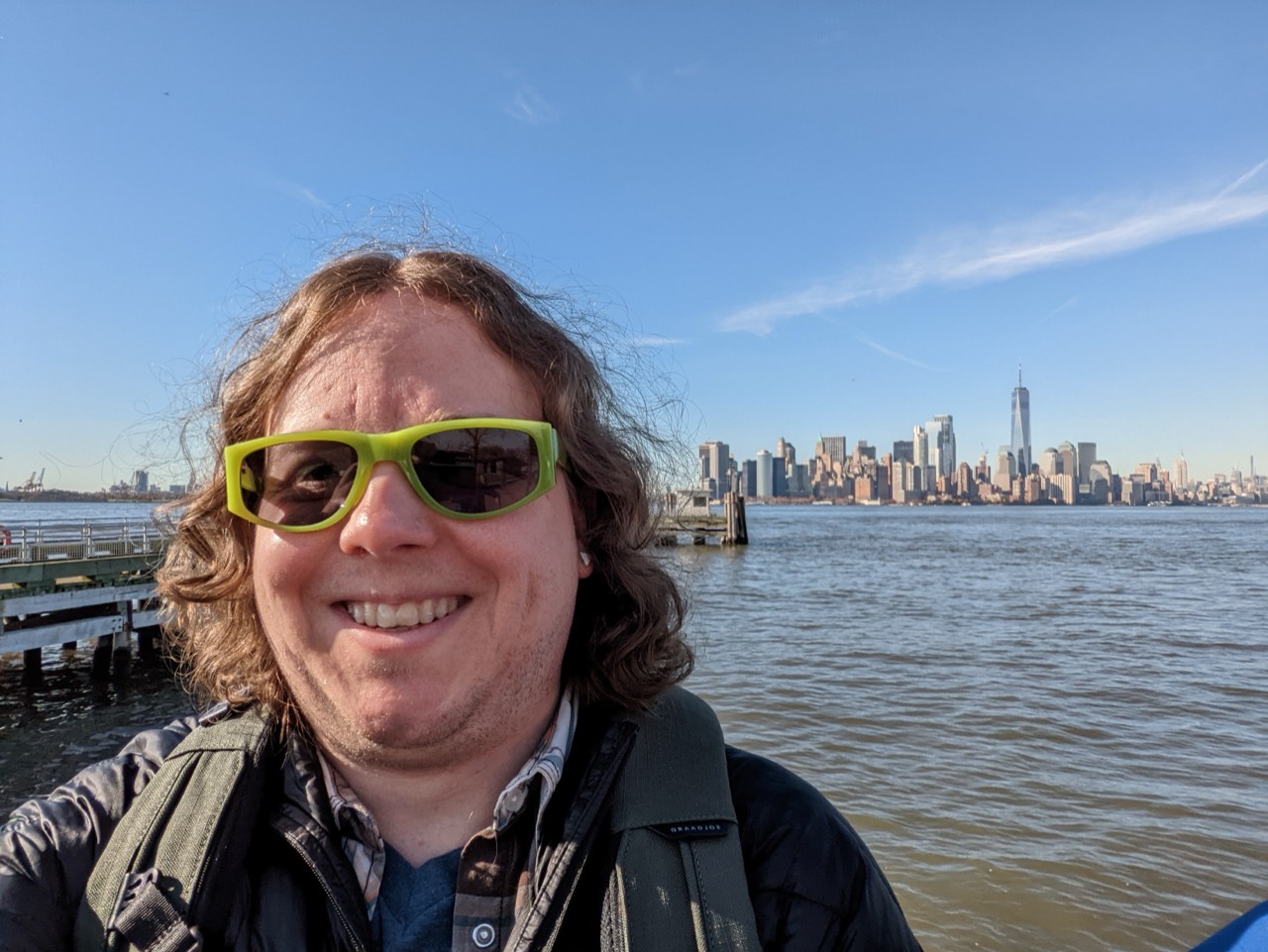
I grew out my hair, pierced my ears, and straightened my teeth in that two-year window. I’m surprised anyone recognized me.
Things are mostly the same in the nearly three years since leaving. I had already experimented with tea and coffee beforehand, but I’ve since tested many more of the forbidden things. I like sweet cocktails, but not dark beer. Cannabis is pretty fun, but it feels scary to buy so it’s very rare. Bubble tea is divine.
My morality is entirely unchanged, apart from actually being okay with gay stuff now. I haven’t gone on dates, but I have had sex. I need practice, but I’m terrible at making conversation, so I’m still pretty lonely. The cute guy on my team at work already has a girlfriend.
I watch too much South-East Asian BL. My current count for actively airing shows is 9.
My manager is helping me train leadership and organizational skills. I’m the de facto expert on Jetpack Compose and Kotlin. Though I would appreciate a slow-paced quarter or two.
Porn is a casual entertainment, not an obsession.
My mood still comes and goes, but I’m open with my parents and manager about when I’m down. I moved to a denser urban area so it’s super easy for me to go outside and be around people. I can take a walk or listen to audiobooks. I’m getting better at using todo lists and reminders to get stuff done.
I’m starting to plan an international trip for this winter.
My floor is messy, but I did laundry yesterday and I’ll do dishes tomorrow.
Losing my faith was partly logical, partly emotional — like most things in the real world. I can no longer believe something I’m not convinced is real, even if there wasn’t emotional scars from its actions against queer people or a questionable founding history. And I was initially willing to keep it a part of my life even without belief, but I left because of its insidious influence on those who innocently trust and follow it.
My mom’s response to my departure surprised me. She told me that she and dad wondered what took me so long. They could tell that my heart wasn’t in it. Far from this shattering our relationship, it has strengthened it. I can now share all of myself with them and, by extension, the rest of the world. I’m free to pursue an honest life and love.